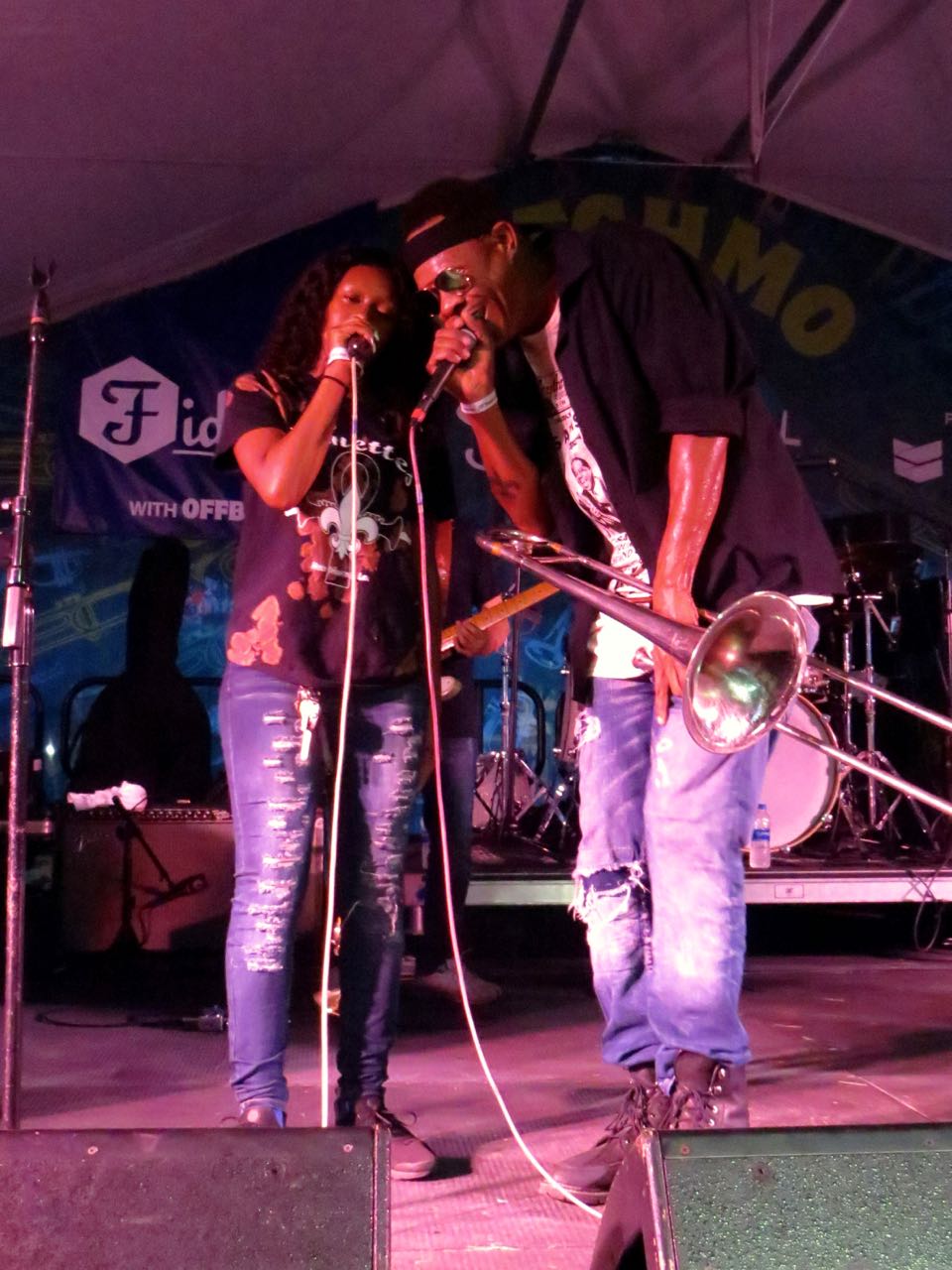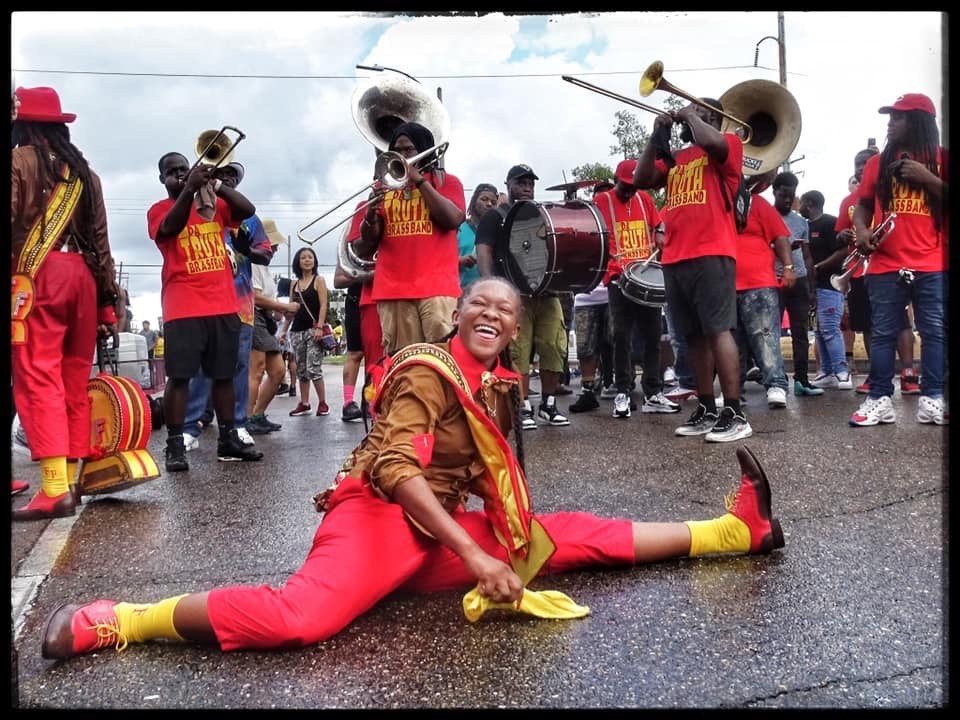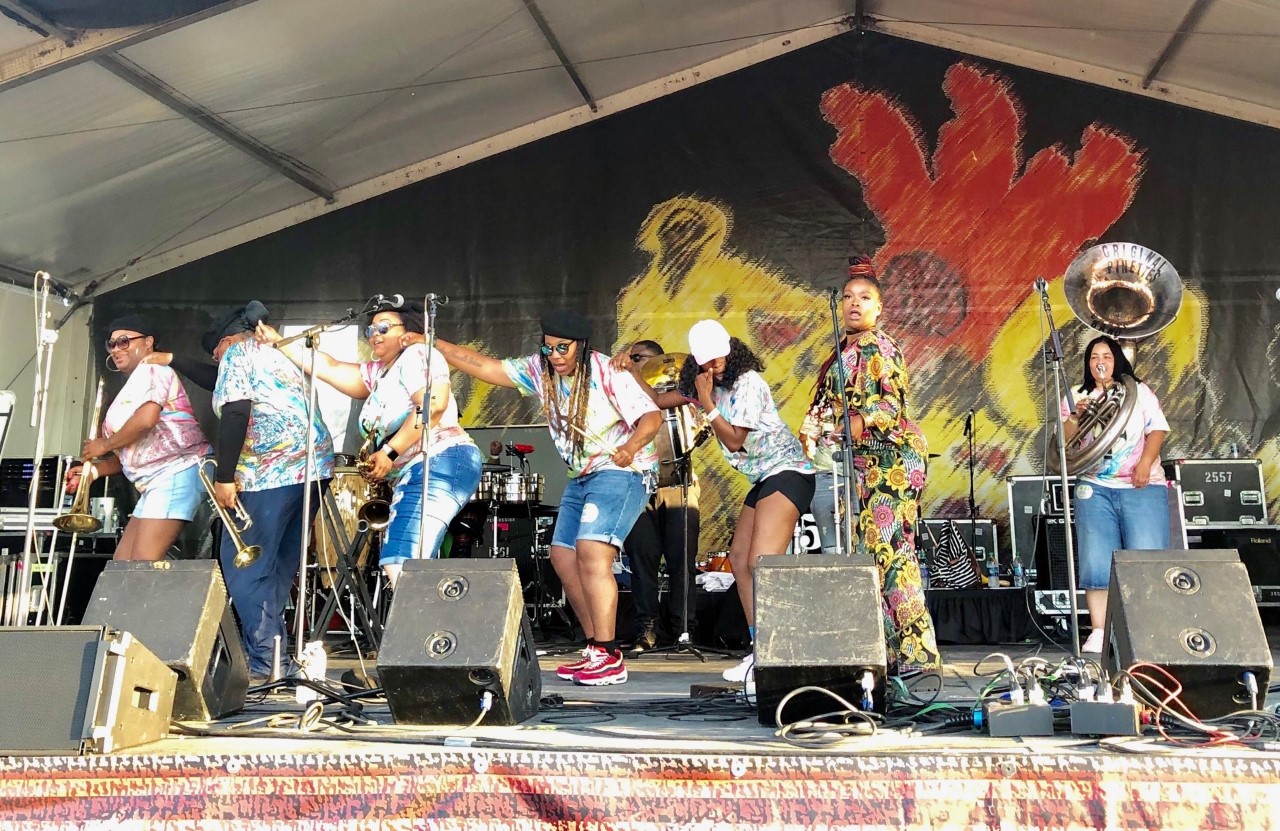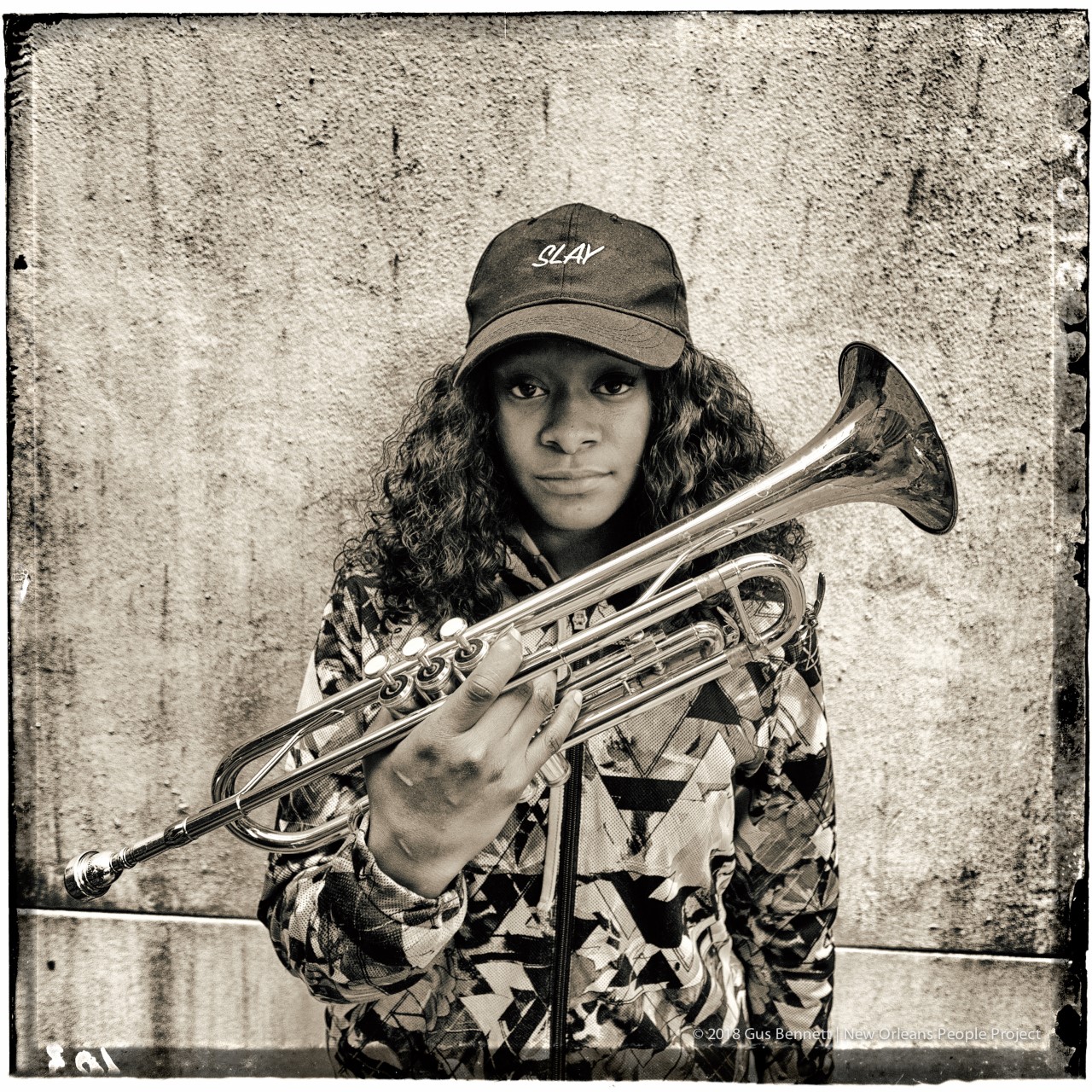By: Jenna Rosen, Alston Armstrong, Gabriel Clark-Clough
The biggest part of New Orleans’ culture is its music. Music is seen and heard everywhere; it is inside nightclubs and bars, emanating from houses, and on the very streets and sidewalks of the city. Music is what New Orleans is famous for, and many New Orleanians enter the music industry. They become professional performers and contribute to the culture they grew up in and celebrate the role it had in their youth. Jazz Henry is no exception, she grew up immersed in the music of the city. It was in her family life, in her school life, in her social life, and even in her name. So when Jazz grew up, creating music in the community was already second nature to her. But Jazz did something even more with her music. She took it one step further and became a part of something so unique, “there is nothing else like it in the world.” She joined the only all female brass band that has ever existed, despite brass bands and music being a male dominated field. With ‘The Pinettes’ she has been making music and lifting spirits ever since.
The musical journey that brought Jazz to ‘The Pinettes’ started at the very beginning of her life. She was born to it. Her father, famous trombonist Cory Henry, has been playing music since six years old. He introduced Jazz to music when she was young. Growing up in this musical household, she learned from some of the greats. From twelve years old, music changed and shaped how Jazz has lived her life. Born and raised in New Orleans, it was there that she created a name for herself.

Jazz Henry performs passionately with her father, Cory Henry
Even now, her father still fosters her love for music and encourages her. Jazz even apologized for joining our interview late, as she was helping her father work on a song. As a family, they have benefited from each other’s talents and passion for music.
Jazz’s love for music took off in high school. There, she joined the Lauren Eastern Charter High School’s marching band. She says this band is where her passion for music truly solidified. The marching band culture in New Orleans is completely different than anywhere else in the world. In most places, marching band is an adjunct to sports or military events; however, in New Orleans, marching band has a life of its own. From participation in Mardi Gras to celebrated individual performances, the marching bands Jazz played for were more than an extracurricular.

Jazz Henry does a split while performing with a marching band
They were a starting ground for greatness. Jazz believes that if she had not joined the marching band, she would not be where she is musically, and she would not be able to play with the only all female brass band in the world, the Pinettes.
High school was not the only influence on Jazz as a musician. Jazz spent her free time volunteering with a group ‘The Roots of Music,’ a non profit organization that works with children to keep them off the streets and doing something productive. Jazz was a member of their program before she went to high school, and volunteering was a way to give back to others the positive influence it had on her. Incorporating so many musical outlets into the already busy life of a young person, Jazz proved how passionate she is about music. As she matured into an independent adult, the founder of ‘The Roots of Music’ approached her in regards to ‘The Pinettes.’ which was much more unknown than it is today, ‘The Pinettes’ was an intriguing opportunity for Jazz, and she auditioned. The band took Jazz under their wings and made her one of their own. Today, Jazz travels and performs with them, making her love for music her career.
Brass instruments and orchestra are traditional to New Orleans culture. Jazz and her band, the Pinettes, carry on this tradition. In her days playing for marching bands, Jazz played trombone and clarinet. These weren’t as fun, she says, as the trumpet, which she now plays. Because she is so energetic, Jazz appreciates the importance of the Trumpet and the freedom that it gives her when playing. It’s a “proper instrument” for someone who loves New Orleans as Jazz does. During the first round of auditioning for “The Pinettes,” Jazz only played clarinet and trombone. In the second round, however, Jazz was able to shine with the Trumpet. She wowed the Pinettes’ members. Soon after, Jazz was accepted as a member of the group.

Jazz Henry performs with her band “The Pinettes”
The trumpet allows her to do what she loves: engage with the audience! Currently, she is combining her creative abilities to create a documentary about second lines in New Orleans. For the documentary, she will give demonstrations on dance moves that are necessary to know before participating in a second line. Her favorite place to be is in the second lines dancing her heart out, and maybe even having a dance off. Jazz believes that the music and marching bands of New Orleans are unmatched. If you were to compare a band from outside of New Orleans, well, “it’s just not possible, the vibe we bring is unmatched… it’s just incredible,” she said during our interview.
“You can’t find the culture of New Orleans Music anywhere else, I have tried, and it just isn’t there,” Jazz says. Jazz believes that the heart and soul of her music is in New Orleans, her home, and she wants other people to love it as much as she does. Jazz isn’t only showcasing the beauty of New Orleans through music, however. She shows her love in her various projects. Aside from her documentary, she is working on a “boozy bakery” where the treats are filled with alcohol. She believes this will showcase New Orleans’ fun and carefree atmosphere. Additionally, she is, of course, creating music that is centered on her love for the city and her band.
New Orleans isn’t the only place where Jazz expresses herself and her love for music. Another creative space Jazz found when she had an opportunity to travel with her band to Switzerland. She said it “didn’t even feel like it was work, and we were getting paid.” Jazz really enjoyed the Swiss culture and the kind people. Jazz loved playing the music she loves, in a place where the culture was different from the one she is used to. Although the type of music remained, the audience, and the connections they felt to her music, could not be more different. Jazz loved getting to see a whole new perspective that she wouldn’t have been able to was she not given that opportunity.
Francesca T. Royster, in her piece “Sounding Like a No-No” (page 2), describes the “consummate eccentric…Rocks racial, gender, and sexual lines.” Jazz would be considered under this definition of eccentric because of her roles as a Black, female musician.

Jazz Henry poses powerfully with her trumpet
Jazz embraced those roles, and her eccentricity, and used them to her advantage. Were she not in New Orleans, she might not have been accepted as an artist. However, the Culture in New Orleans has allowed Jazz, and her music career, to thrive. Jazz admits that the music scene may be different after COVID has passed, there will always be a way to perform music. She said she “would love to do another livestream performance,” since large gatherings are not possible.
Even with COVID 19 keeping us in a fearful state, Jazz still exudes energy and strives to continue her music. Having a vibrant past in New Orleans, and being in “The Pinettes,” Jazz has a lot going for her. Jazz’s legendary roots truly have led way to a legendary future for her to look forward to in a (literally) one of a kind band. This pause will not be the end of Jazz and all of her many creative abilities. Wherever she goes, her upbeat attitude and confidence will follow.
This piece is part of the on-going series “The Social and Political Commentary of Music Reviews,” which is part of an Alternative Journalism course at Tulane University taught by Dr. Christine Capetola.
You can donate to Jazz’s tip jar here:

 NOLAbeings
Multimedia artist Claire Bangser created NOLAbeings as a portrait-based story project that marries...
NOLAbeings
Multimedia artist Claire Bangser created NOLAbeings as a portrait-based story project that marries...
 Data corner: Adobe Suite (create a PDF, social media graphic, presentation, edit a photo and video
Data corner is where you go to work with analytics and top tech skills. It takes on everything from PERL and SQL to Canva and Sprout Social.
Data corner: Adobe Suite (create a PDF, social media graphic, presentation, edit a photo and video
Data corner is where you go to work with analytics and top tech skills. It takes on everything from PERL and SQL to Canva and Sprout Social.
